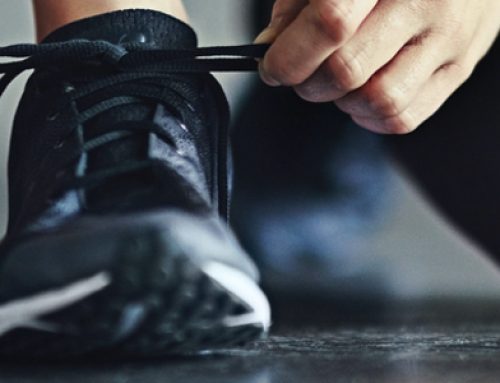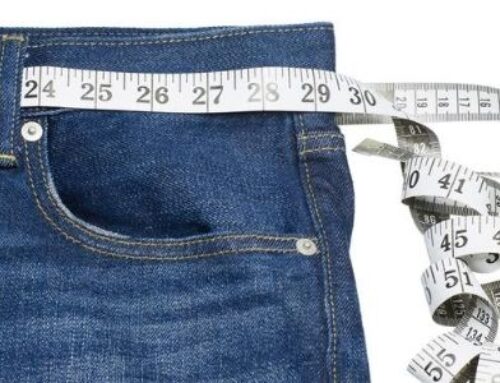I’ve had six pack abs.
I’ve stood on stage in front of hundreds of spectators, rocking that Snooky tan, in sparkly underwear, hitting a bunch of poses.
And I LOVED it.
I also spent years unhappy with my body. Obsessed with getting leaner. I had irrational fears of particular foods that lead to super restrictive diets and poor relationships with food. I used to look in the mirror and focus on all the negatives.
Theses events were actually quite far apart, with the worst of it occurring between the ages of 18 to 21.
I know this seems like extreme examples and that this doesn’t represent the norm. Maybe you’re right, but I’m of the opinion that in our current society males are struggling with body image and disordered eating patterns more than ever before. In fact, there is a growing amount of data to back up this opinion. [1,2]
What’s more, as males we tend to be ‘vulnerability averse’. It’s very likely that the majority of cases go un-reported. We don’t like acknowledging our problems, seeking help or even thinking about the emotional side of things. We’ve been brought up to distinctly not show vulnerability, to push through the pain and bury things deep down. I get it. We’re meant to be tough and not care what people think.
That’s straight up bullsh*t, especially in young men. I see it in young guys in the gym every single day, doing 2 hour workouts and constantly staring into mirrors.
Unfortunately, we’re a society where the majority of us give greater value to the perceptions of others rather than our own perceptions. Social standing plays a large role in young people’s lives and in our current western culture how we look plays a large part in that.
So what’s driving this growing trend? Why are young males (whether we admit it or not) feeling more pressured then ever to have a 6 pack and sleeve stretching arms? The answer is hugely multifactorial and I’m not going to go travel down every avenue but a large factor is how the media portrays healthy males and displays the ‘ideal’ male body.
Anyone interested in fitness or nutrition and with an Instagram account will be aware of the thousands of ‘fitness model’ accounts that tag #fitspo on a daily basis. (2,115,661 posts currently). This, along with magazines, movies, TV stars and any marketing in general is pushing the “ripped” male body as the healthy standard.
Now you may think I’m adverse to the goal of getting abs or for training for purely aesthetic reasons, but I’m not. I’ve trained with the goal of looking great naked for 7 years. It’s one of the main reasons I train and I have no problem with that. I feel the goal of improving ones self across all aspects of life, including physically, is a great goal.
However, the problem occurs when these practices are taken beyond what’s healthy. When the desire to be leaner or bigger results in behaviours that are in fact unhealthy. When they start going to extreme lengths in the attempt to obtain the ‘ideal’ fitness model physique that the media portrays as healthy and obtainable.
The sad news is, for the majority of men, this ‘ideal’ is not obtainable, at least in a healthy manner or for prolonged periods of time. So whether you choose to acknowledge it or not just listen and pay attention because I’m going to outline 6 truths about the “cover model” look.
1) Not everyone can become a fitness model
I’m sorry to bring a bit of a downer to the article straight from the get-go but it’s true.
Genetics play a large role in the level of muscularity you can develop naturally. The top guys you see on the front of magazines or under #fitspo on social media typically have above average genetics, have been training consistently for upwards of 7 years and while I like to give many the benefit of the doubt, may also dabble in performance enhancing drugs.
It’s also important to remember that for many of them, their life revolves around looking amazing. It helps pay their bills. They have the biggest incentive to make sure that they are training and eating “perfectly” every day. It’s numero uno on their priority list.
Where as the majority of people have a ton of other commitments and priorities, with trying to get a six pack having to contend with these.
So should you stop trying?… Definitely not.
Apart from the obvious health benefits of training, everyone has the capacity to improve upon their present self. Just be aware of what’s realistic.
2) Being “shredded” isn’t long term sustainable
I loved rocking a six pack when I was competing but was it worth feeling lethargic, flat and if I’m quite frank, like sh*t, each day? Absolutely not! Even the fitness models know this.
Want to know an industry secret? Many of these fitness models don’t maintain this look year round. They just have smart strategies to make it look that way, so that we think they’re walking around at 8% body fat year round.
The truth is that many of these guys sit at a slightly higher body fat and then cut down for a shoot. In a shoot, they will take photos in multiple locations in multiple clothes and then release these over time to make you think they are constantly “ripped”. They do this because it’s much easier to sit at 10-12% body fat then it is to maintain 7-8%.
So, don’t be sucked into thinking they’re walking around at this level of conditioning every day of the year! The majority aren’t, and unfortunately a key of marketing is to prey on your insecurities in order to get your business. “Want to have a six pack year round?! Following my training and nutrition program you’ll never have to stress about taking your shirt off again”. Sound familiar?
3) It impacts on health
Often, the only way to obtain such low body fat levels is through an increase in energy expenditure via training, a decrease in energy intake (aka eating less calories) or a mixture of the two. When taken to the extremes and implemented for prolonged periods, this results in inadequate energy to support the range of body functions involved in optimal health and performance. This low energy availability can alter a number of our body systems in order to try and reduce its energy expenditure.
Unfortunately, this can include disruption to hormonal, metabolic and functional characteristics. These disruptions can lead to:
- Chronic fatigue
- Increased risk of infections and illnesses
- Reduced bone mineral density (which increases the risk of fractures)
- Increased risk of injuries
Still not convinced? What if I told you that when you diet for prolonged periods of time to get to extreme levels of body fat your testosterone can drop by up to 75%! [3] With studies on bodybuilders showing levels dropping lower than reference ranges.
Sayonara sex drive!
Goodbye gainz!
If that’s not enough to make you reconsider extreme diet and training regimes then perhaps the dirty looks your partner shoots you will be.
4) You become obsessed with food
When your body is in a severe energy deficit for a prolonged time, it puts in motion processes to try and make you eat more. (Annoying when you’re trying to lose fat right!?).
Leptin (a satiation) hormone decreases and ghrelin (a hunger hormone) rises, thereby making you hungrier throughout the day. Remember how I mentioned that cortisol (the stress hormone) is also higher? Well this pretty much equals a constant state of hanger.
So, if you’re planning on getting super lean it may be worth apologising to those close to you now.
Constant hunger obviously leads to food on the mind. While males are less likely to present with eating disorders than females, it is still fairly common in weight or aesthetic based sports (18%).[4] Essentially, spending too long in severe energy deficits leads to extreme hunger and thoughts of food which eventually leads to driving one crazy.
I once swore at my cat for 2 minutes straight after I burnt my oats one morning. The cat didn’t deserve that. That’s crazy. And now my cat has an inherent fear of oats.
I’m not alone. Every person I’ve talked to who has competed or dieted to extremely low levels of body fat have a similar story!
What’s ironic is that while you’ll have food on the mind, you’re also more likely to develop nutrient deficiencies due to lower energy intakes.
5) Your training performance sucks
This just makes sense when you think about it. With greater amounts of training meaning increased energy expenditure and reduced food consumption equaling inadequate energy intake, performance is going to suffer.
When you’re in a severe deficit for a prolonged period of time it’s highly unlikely you’ll be making any muscle or strength gains due to a reduction in muscle protein synthesis (building of muscle).[5]
In addition to reduced recovery rates, these two factors likely indicate an overall decreased training response.
Meaning, you might be putting the effort in but you’ll be getting less in return.
6) It detracts from other important areas of life
While it’s the last of my points, this is just as important as the rest. To push your body to the levels of body fat required for the ‘cover model’ abs requires huge commitment.
Eating well and training hard just doesn’t cut it. It can mean multiple training sessions a day. It can be socially isolating. It can mean avoiding meals out with friends and family. It can take up so much of your thoughts and time that other important areas of your life such as work, your social life, relationships etc. are all put on the back burners.
While much of this can be handled with good communication for a period of time, inevitably they will suffer in the long run if there isn’t a good balance between all aspects.
So should I give up my dream of a six pack?
There is nothing wrong with working towards that goal, as long as it doesn’t negatively affect your health or other areas of your life.
The point of this article is to create awareness that what the media illustrates as the healthy, fit, ‘ideal’ male body isn’t realistic or healthy in the long term.
If you want to test yourself and see how lean you can get then that’s great, I have plenty of clients who come to me for those reasons. But I will let you know from the beginning that the end goal is not sustainable and can be detrimental to health both physically and psychologically if maintained for too long.
If you don’t have a short term goal such as a competition or photo shoot then you’re better off finding you’re sweet spot. Everyone’s sweet spot will vary, but it’s the point at which your happy with how you look, how you feel and can still live a normal, kickass, life.
For me this means that while my abs might not be quite as sharp, my training is better and my productivity at work is improved, I rarely get angry (or hangry), I can eat delicious foods and I can enjoy social occasions with the people I care about, without worrying about me getting “fat”.
Take it from someone who’s been there and back, getting extremely lean has its perks and can be a great way to learn about your body, but it’s hard work, a big commitment and unsustainable. Whatever your goals are, be realistic, enjoy the process and only compare yourself against you, not the “ideal” male body we see all over the media.
If you’d like further help with your nutrition please click below:
References:
- Pope H, Phillips KA, Olivardia R. The Adonis complex: The secret crisis of male body obsession. Simon and Schuster; 2000.
- Pope, H. G., Jr, Gruber, A. J., Mangweth, B., Bureau, B., deCol, C., Jouvent, R., & Hudson, J. I. (2000). Body image perception among men in three countries. American Journal of Psychiatry, 157, 1297–1301.
- Rossow LM, Fukuda DH, Fahs CA, Loenneke JP, Stout JR. Natural bodybuilding competition preparation and recovery: a 12-month case study. Int J Sports Physiol Perform. 2013 Sep 1;8(5):582-92.
- . Sundgot-Borgen J, Meyer NL, Lohman TG, Ackland TR, Maughan RJ, Stewart AD, Müller W. How to minimise the health risks to athletes who compete in weight-sensitive sports review and position statement on behalf of the Ad Hoc Research Working Group on Body Composition, Health and Performance, under the auspices of the IOC Medical Commission. British Journal of Sports Medicine. 2013 Nov 1;47(16):1012-22.
- Mountjoy M, Sundgot-Borgen J, Burke L, Carter S, Constantini N, Lebrun C, Meyer N, Sherman R, Steffen K, Budgett R, Ljungqvist A. The IOC consensus statement: beyond the female athlete triad—Relative Energy Deficiency in Sport (RED-S). British journal of sports medicine. 2014 Apr 1;48(7):491-7.






